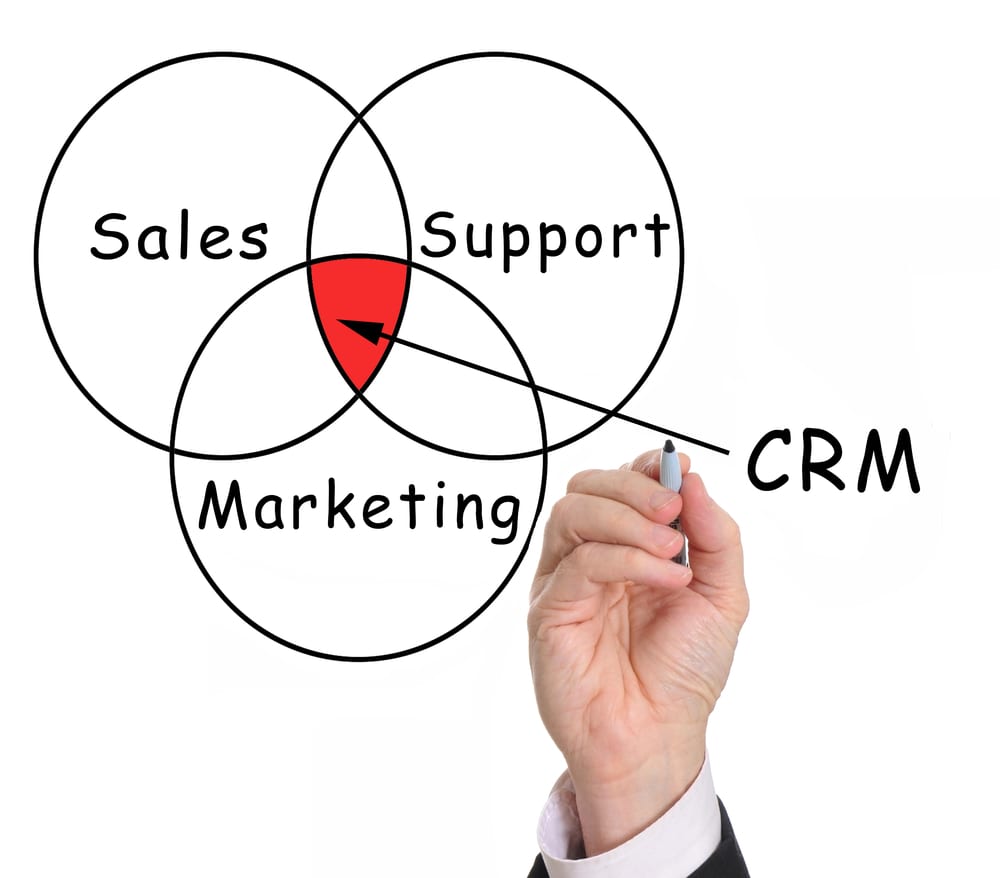To date many businesses (especially, small and medium sized business owners) have used Outlook email services as a customer relationship management solution for their businesses. This practice is increasingly attracting comments and criticism from a section of industry experts, who argue that although certain features of a comprehensive CRM solution has been embedded in Outlook it can’t replace customer relationship management software as a complete customer contact management tool. This is an analytical write-up which has discussed both sides of the story to help our readers find a better customer management solution for their business.
Irrespective of what CRM solution they use, entrepreneurs across industries have agreed that customers constitute the core of their businesses and they strive continuously to better their services for clients. They have already recognized how indispensable CRM can be in effectively managing customer interactions/relationships. But many small businesses (and some mid-sized businesses as well) insist on using Outlook to conduct their daily operation.
What Microsoft Outlook really is?
As Microsoft itself has described it, Microsoft Outlook is essentially a calendar and email software. Wikipedia describes it as “Microsoft Outlook is a personal information manager from Microsoft, available as a part of the Microsoft Office suite.”
Although, it primarily is an email application it also comes with calendar, task manager, journal manager, contact manager and note taking facilities. It can either work as a standalone service or can be integrated with other enterprise applications through Microsoft Exchange Server and Microsoft SharePoint Server. The integrated version allows creating public folders, meeting schedules, etc. to share between users.
Why some intend on using Outlook as CRM?
The basic objective of using CRM software solutions is to organize customer contact details in a unified platform and to be able to send and receive emails from it. Outlook can be used for that purpose. Moreover, it allows you to mark calendars with appointments, create and manage task lists, set alarms and reminders on your outlook inbox, create events and to-do lists, create folders etc. So, if you are a small business entrepreneur with a few contacts to manage then you can settle for Outlook. It can be simply downloaded in your system for free of cost.
And, why an alternative theory exists?
But for businesses with a growing demand for customer management may find Outlook insufficient to cater to their needs. When the demand is for a comprehensive business application shortcomings of Outlook as CRM solution become prominent.
Outlook allows you to create folders on contact names where every email communication with the contact can be arranged. This works fine for companies with a handful of contacts and email accounts to manage. But when you have a growing client base dragging and dropping each mail from contacts to their particular folders may become difficult to manage.
Next, Outlook does not link files, folders, PDFs or photos shared with contacts under their names automatically. Hence, there is no way to keep track on the progress of customer interaction at one place. Further, Outlook doesn’t tell the history of communication that you and your team have had with the client. So, you cannot evaluate what communication you had in the past with the client.
CRM solutions
These issues can be solved with most CRM products available in the market. Most CRM software providers have incorporated auto email linking feature in their products that frees you from the mundane works. Each communication from a contact will get automatically linked to the client’s account. Further, CRM offers a platform wherein an entire history of communication can be stored to be viewed later.
Outlook doesn’t allow you to share documents, meeting details etc. with your team. Although Outlook can be integrated using Microsoft Exchange Server and Microsoft SharePoint Server but these are expensive options for small businesses.
Modern customer relationship management software solutions have matured to become a complete business management solution for enterprises. Today CRM solutions are available for sales automation, marketing automation and customer service solutions.
The sales automation interface allows executives to manage sales prospects, receive complete preview of client’s profile, perform analysis of sales performance, effective sales leads management and pipeline management system, and more. One can now generate composite reports from CRM software to review and analyze sales performance.
Marketing professionals can use insights available on customer’s purchasing history to determine sales possibilities and create and run targeted marketing campaign. Modern CRM solutions have integrated intelligent marketing automation tools such as- email campaign integration, Sms/call integration, DRIP marketing, auto responders and more to allow marketing executives to manage entire marketing campaign from within CRM application.
Outlook CRM plug-ins
CRM plug-ins for Outlook allows effective management of your Outlook contacts on the customer relationship management interface. It creates an efficient interaction tracking system that allows the users to attach email communication and documents under prospect/customer’s account. It also offers an easy sharing solution where appointments updated on Outlook can be shared with other users of the CRM.
Do you use Outlook as a CRM solution?
Did you like this article?

- Please share it with your network, we’d really appreciate it!
- Would you like to write for Tweak Your Biz? Or sign up for our RSS?
- An outstanding title can increase tweets, Facebook Likes, and visitor traffic by 50% or more. Generate great titles for your articles and blog posts with the Tweak Your Biz Title Generator.
Connect with Tweak Your Biz on: 


Images: ”Hand drawing Customer Relationship Management (CRM) chart / Shutterstock.com“


